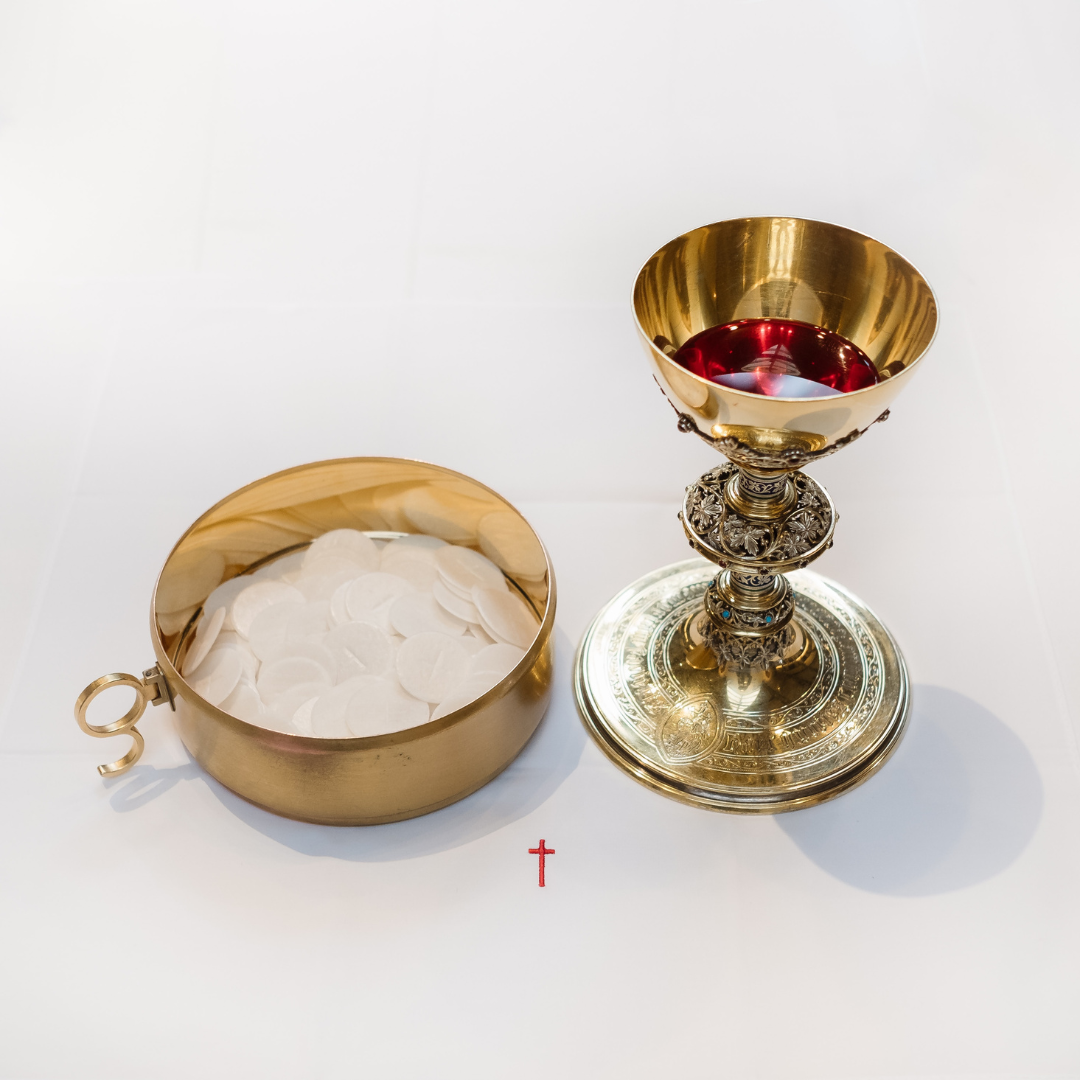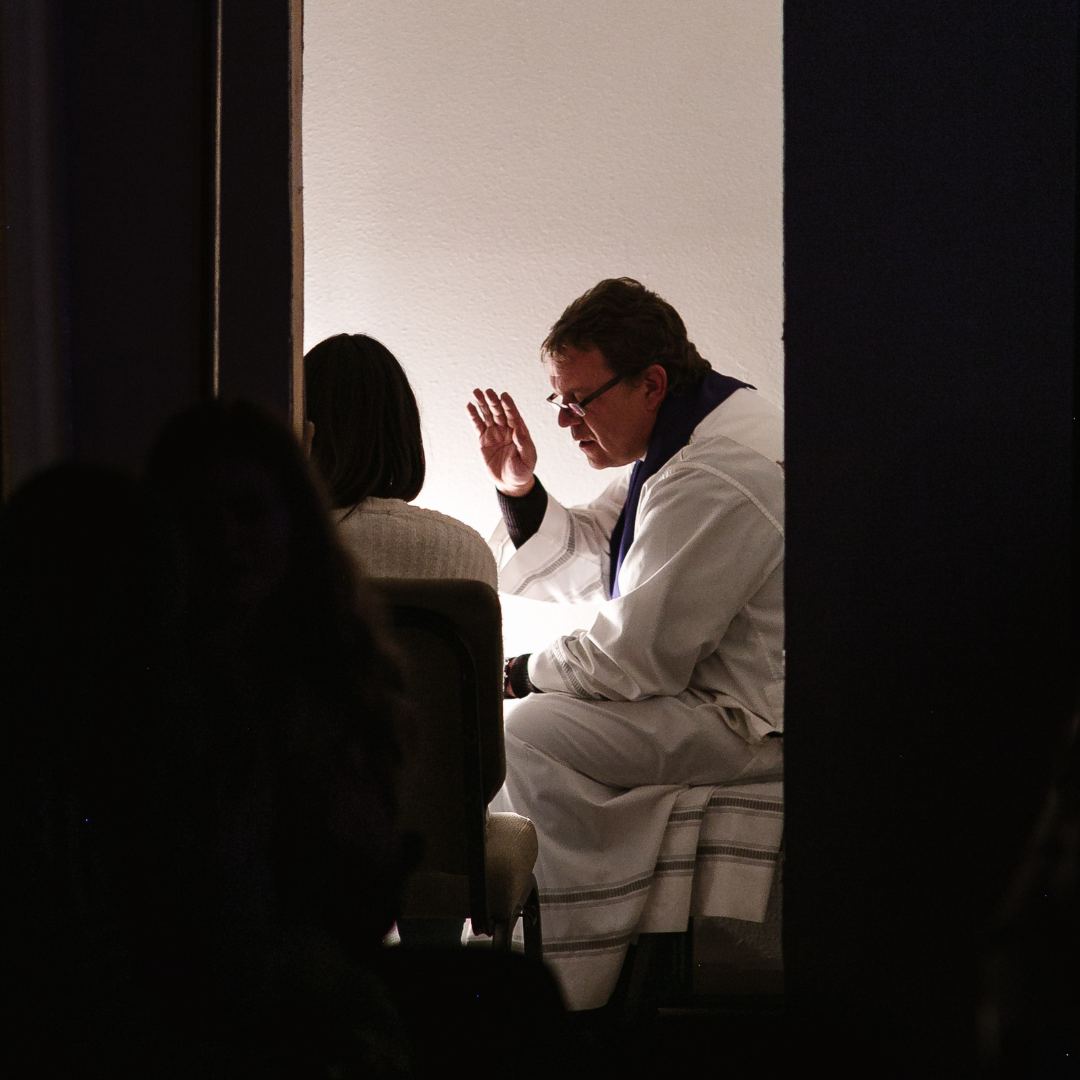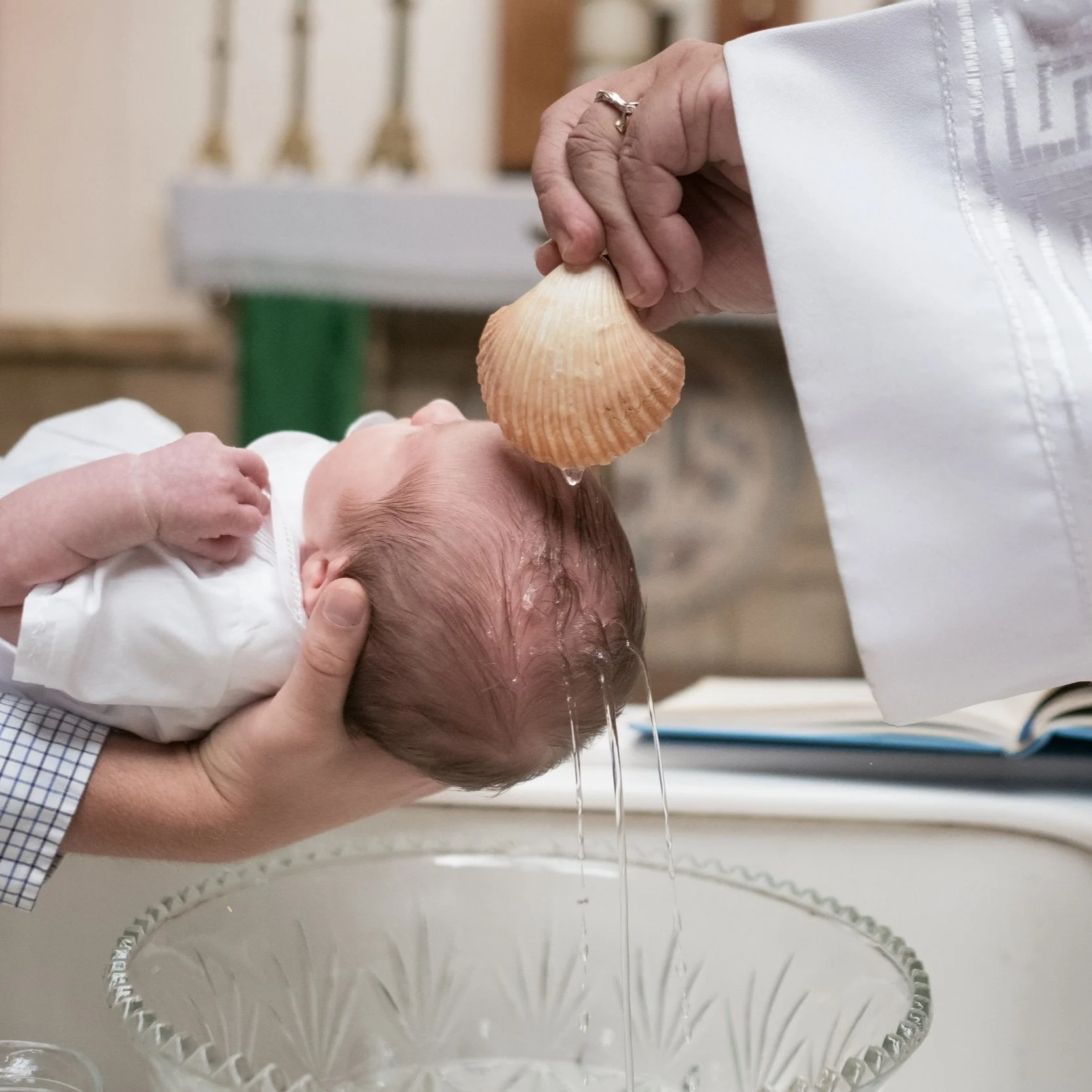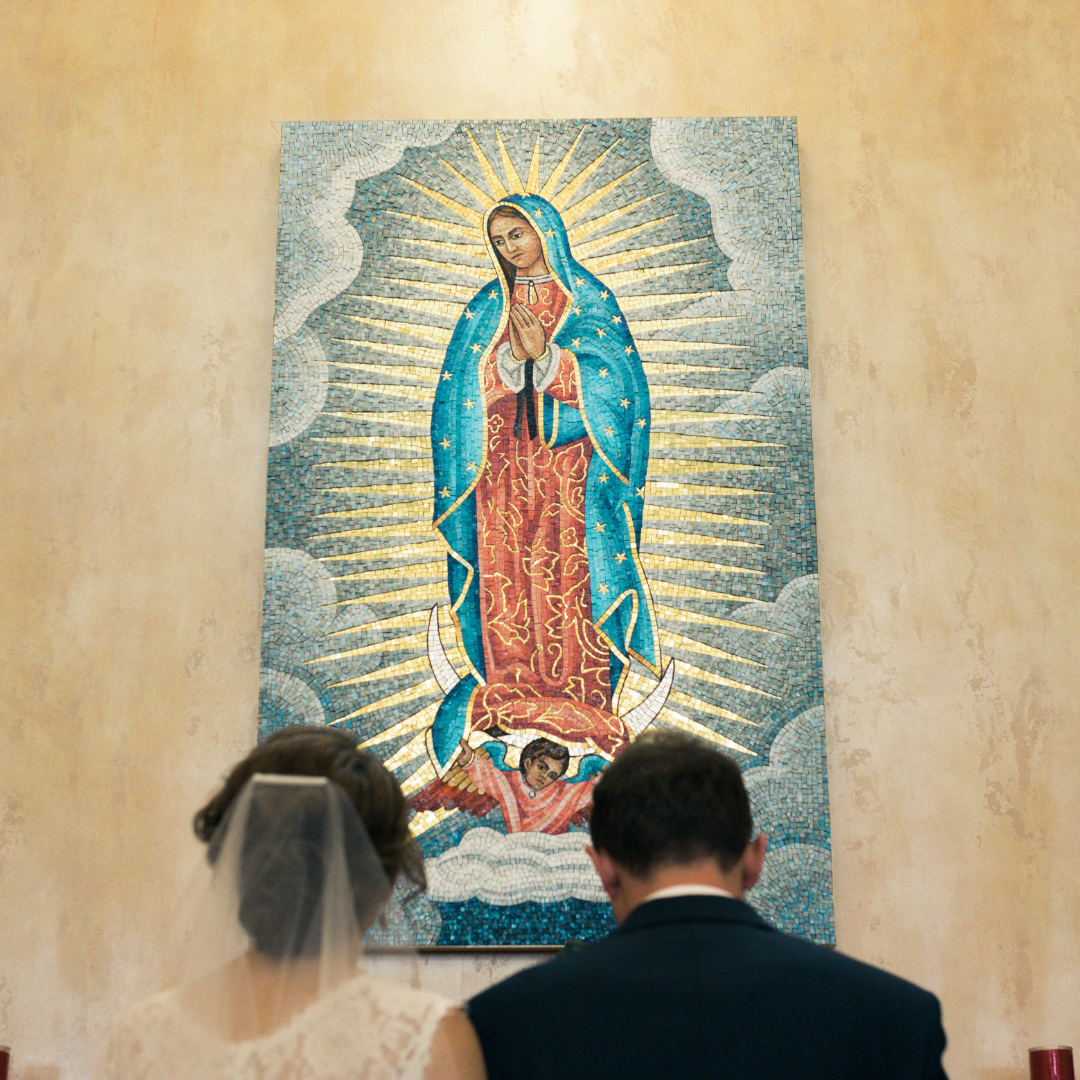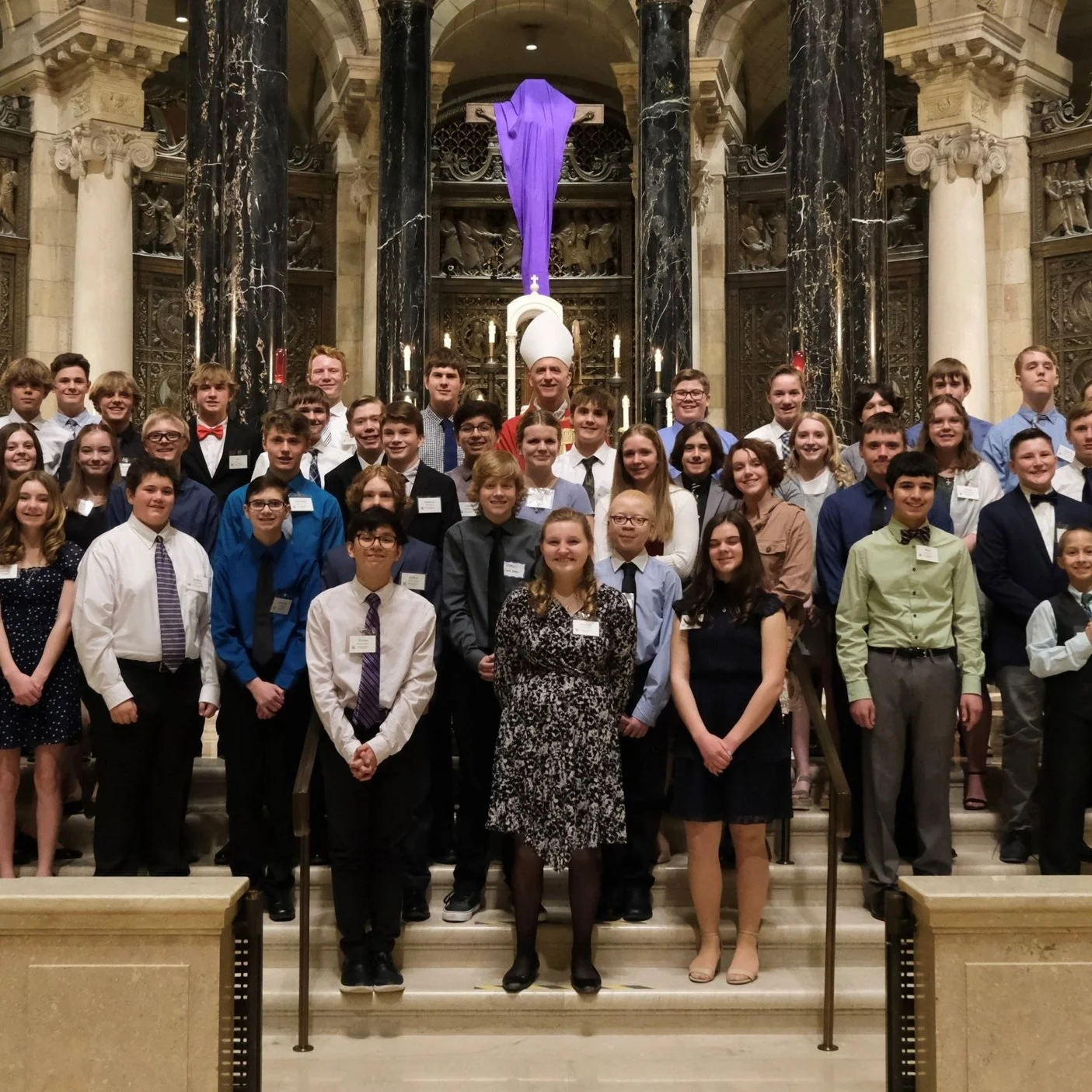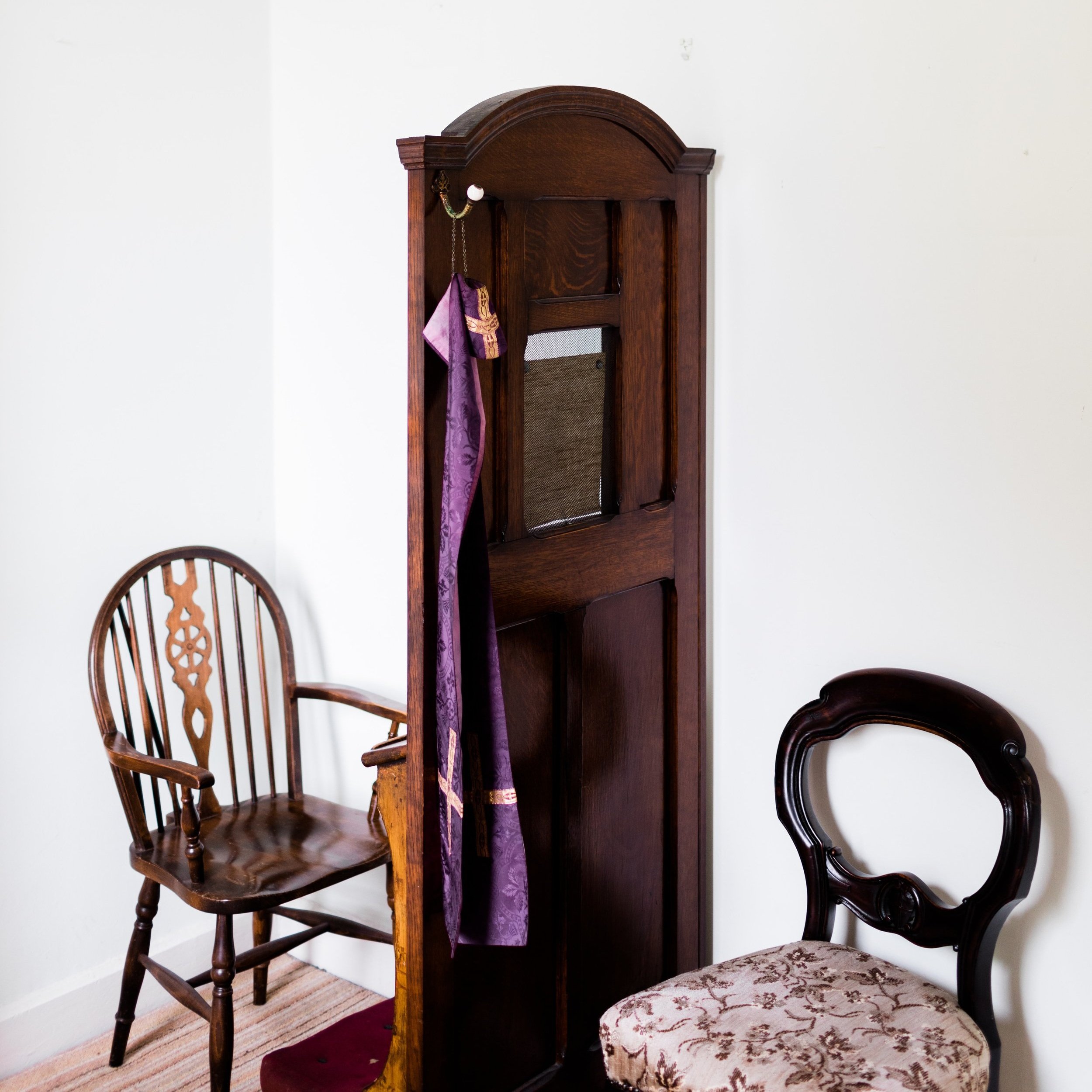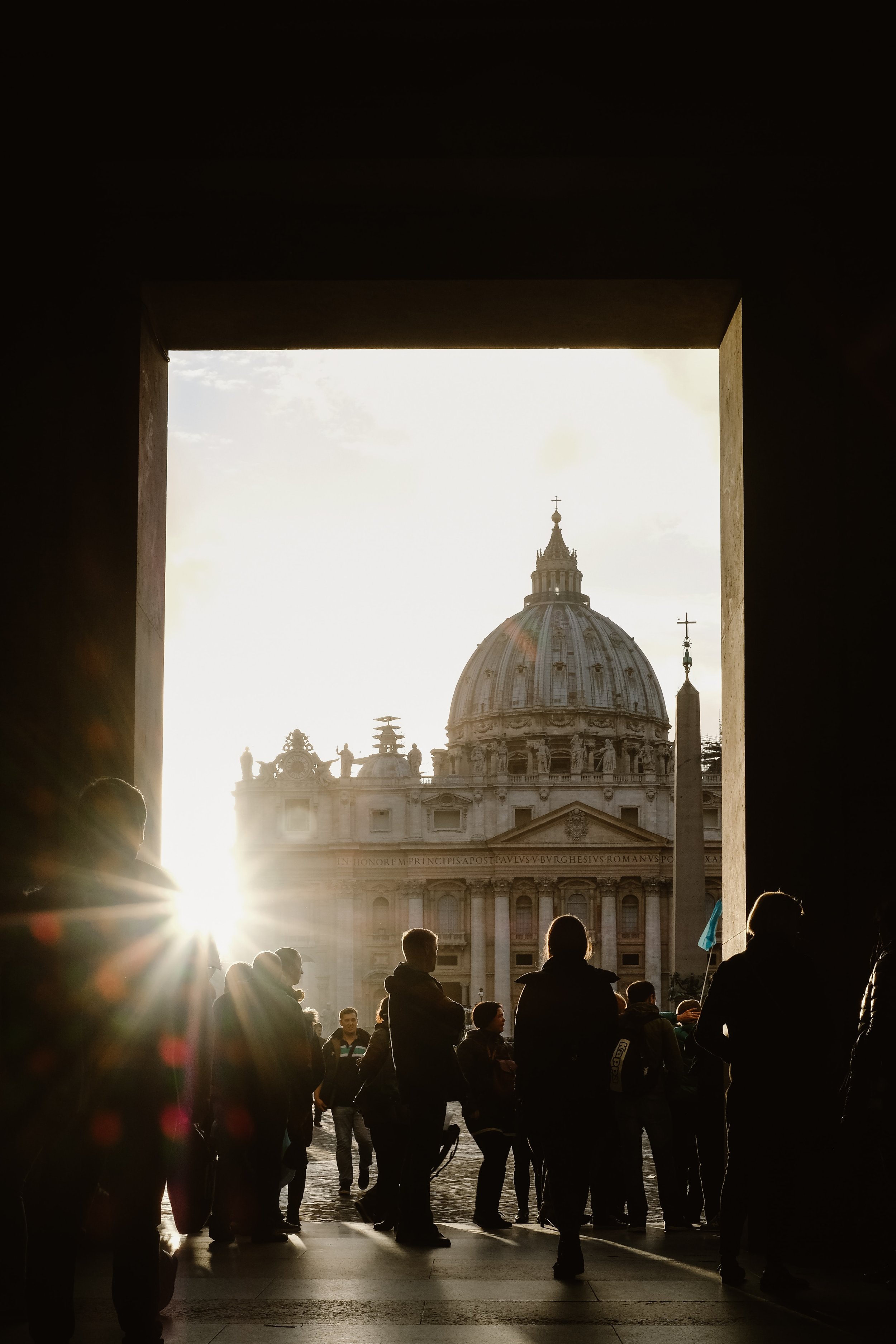
SACRAMENTS
"The whole liturgical life of the Church revolves around the Eucharistic sacrifice and the sacraments."
— Catechism of the Catholic Church, 1113
"Christ instituted the sacraments of the new law. There are seven. The seven sacraments touch all the stages of Christian life: they give birth and increase, healing and mission to the Christian's life of faith. There is thus a certain resemblance between the stages of natural life and the stages of spiritual life."
— Catechism of the Catholic Church, 1210
"Sacraments are "powers that come forth" from the Body of Christ, which is ever-living and life-giving. They are actions of the Holy Spirit at work in His body, the Church. They are "the masterworks of God" in the new and everlasting covenant."
— Catechism of the Catholic Church, 1116
The Seven Sacraments
Baptism is the basis of the Christian life. Through it, we are freed from sin and reborn as sons and daughters of God.
Reconciliation (also known as Confession) was initiated by Christ as a way to cleanse our souls of sins and to make amends with our Lord.
The Eucharist is the true Body and Blood of Jesus Christ. Through it, we unite ourselves with the heavenly liturgy and anticipate eternal life
Confirmation strengthens the grace of Baptism and commits the baptized to become witnesses of Christ by word and deed and to spread and defend the faith.
Marriage is the Sacrament by which a baptized man and a woman freely establish between themselves a union - partnership - of the whole of life.
Through Holy Orders, the mission entrusted by Christ to his apostles continues to be exercised in the Church until the end of time.
The Lord himself showed great concern for the bodily and spiritual welfare of the sick and commanded his followers to do likewise.
SACRAMENTAL PREPARATION
CONFIRMATION
This small group-based ministry helps to prepare young people for the celebration of the Sacrament of Confirmation. Christian adult leaders walk alongside the teens on their journey through these very challenging years. Volunteering as a Confirmation leader can be very rewarding.
FIRST COMMUNION
A day of preparation is held in April offering various hands-on activities to engage and educate students about this sacrament they are preparing to receive. Volunteer opportunities exist for this half day event assisting with activities such as drama, crafts, interviewing children, and preparing snacks.
FIRST CONFESSION
A day of preparation is held in January offering various hands-on activities to engage and educate students about this sacrament they are preparing to receive. Volunteer opportunities exist for this half day event assisting with activities such as crafts, interviewing children, and preparing snacks.
MARRIAGE FOCCUS
In this program, married couples mentor engaged couples entering the sacrament of Matrimony to help them commit to building a stronger marriage. Couples with a strong, faith-filled marriage are an inspiration to these engaged couples. Interested couples are interviewed/selected by our Pastor.
ORDER OF CHRISTIAN INITIATION OF ADULTS
The journey in which an adult is received into full communion with the Roman Catholic Church. OCIA is intended for persons over 17 years of age who have never been baptized, have never been fully initiated through Eucharist and Confirmation, or persons coming from other denominations. OCIA is also open to adults who simply want to learn more about the Catholic faith. The group gathers weekly in the evenings from September through April. Volunteers support the Deacon with various duties.


